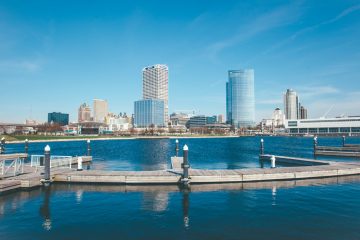Few civic leaders are as bedazzeled with flimflammery as is the collection of mediocrities forming the San Francisco Board of Supervisors.
Their childlike naïvety is on display as they discuss how to curb the drunken squalor infesting the center of their city. The Tenderloin is about 50 square blocks nestled between Nob Hill and Market Street, bound by the Civic Center to the west and the Union Square shopping district to the east. It provides inexpensive, but often sleazy, housing as well as a multitude of lowlife bars and strip clubs. At one time the city had several skid row sections but over time these have been upgraded, displacing the inhabitants so the Tenderloin is now the prime location for public drunkenness and its ensuing pathologies. On its crowded streets a liquor store is always nearby, often several on one block.
To restore order a supervisor is proposing restrictions on new liquor stores effecting, in theory, a moratorium. Since a liquor store selling cheap booze is never more than a block away, such a law would not reduce public consumption and inebriation one bit. If a block contains 100 drunks who get their booze from two stores preventing two more stores from opening on the block wouldn’t reduce the total number of drunks. Since the Tenderloin is now saturated with liquor stores there is no financial incentive to open any more. The moratorium is mere window dressing to make the supervisors feel good about themselves while pretending to address a problem that they themselves have defined.
"This is not a solution for alcoholism. We have limited tools. But I can’t sit idly by and watch this," says the supervisor sponsoring the moratorium, admitting that his piece of legislation is meaningless. The reporter, a progressive chap, who writes this story agrees, thereby revealing an essential problem with social activism.
The Board of Supervisors as well as members of the progressive community see the liquor stores as the problem instead of the miscreants who actually misbehave in the Tenderloin. Reduce the number of liquor stores and regulate them effectively and the problem, in their view, will go away. Sensible people know otherwise.
The alcohol control activists have an arsenal of options that warrant consideration. One that is especially dear to their hearts is to charge a hefty fee for the privilege of running a liquor store. Oakland for one does just that and over the years has seen the number of liquor outlets drop by over 100. As a representative of small grocers noted, however, the reduction of liquor stores did not reduce alcohol-related crime in the least. As always, symbolism is more important to the social engineers than results. When one regulation fails there are plenty of others to try in an endless experiment to modify compassionately the behavior of those who just can’t seem to behave themselves.
Already on the books, but rarely enforced, are laws against public drunkenness and associated criminal activity. The Board of Supervisors could demand that the police do their job. The Board could also open a drunk tank in the neighborhood rather than hauling, at great expense, passed-out drunks to the city hospital’s emergency room. Instead the Board will spew out regulations that can only negatively affect the law abiding while patting themselves on the back for showing how much they care.



0 Comments